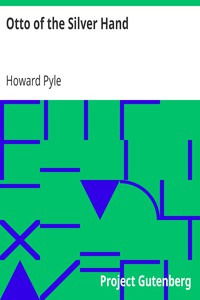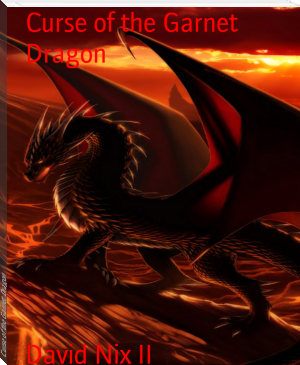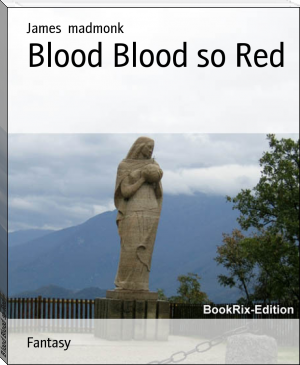Otto of the Silver Hand by Howard Pyle (best summer reads .txt) 📗

- Author: Howard Pyle
Book online «Otto of the Silver Hand by Howard Pyle (best summer reads .txt) 📗». Author Howard Pyle
Just beneath the window lay the figure of a man half naked and face downward upon the stones. Then suddenly Otto cried out in fear and horror, for, as he looked with dazed and bewildered eyes down into the lurid court-yard beneath, a savage man, in a shining breast-plate and steel cap, came dragging the dark, silent figure of a woman across the stones; but whether she was dead or in a swoon, Otto could not tell.
And every moment the pulsing of that dull red glare from the windows of the building across the court-yard shone more brightly, and the glare from other flaming buildings, which Otto could not see from his window, turned the black, starry night into a lurid day.
Just then the door of the room was burst open, and in rushed poor old Ursela, crazy with her terror. She flung herself down upon the floor and caught Otto around the knees. “Save me!” she cried, “save me!” as though the poor, pale child could be of any help to her at such a time. In the passageway without shone the light of torches, and the sound of loud footsteps came nearer and nearer.
And still through all the din sounded continually the clash and clang and clamor of the great alarm bell.
The red light flashed into the room, and in the doorway stood a tall, thin figure clad from head to foot in glittering chain armor. From behind this fierce knight, with his dark, narrow, cruel face, its deep-set eyes glistening in the light of the torches, crowded six or eight savage, low-browed, brutal men, who stared into the room and at the white-faced boy as he stood by the window with the old woman clinging to his knees and praying to him for help.
“We have cracked the nut and here is the kernel,” said one of them who stood behind the rest, and thereupon a roar of brutal laughter went up. But the cruel face of the armed knight never relaxed into a smile; he strode into the room and laid his iron hand heavily upon the boy’s shoulder. “Art thou the young Baron Otto?” said he, in a harsh voice.
“Aye,” said the lad; “but do not kill me.”
The knight did not answer him. “Fetch the cord hither,” said he, “and drag the old witch away.”
It took two of them to loosen poor old Ursela’s crazy clutch from about her young master. Then amid roars of laughter they dragged her away, screaming and scratching and striking with her fists.
They drew back Otto’s arms behind his back and wrapped them round and round with a bowstring. Then they pushed and hustled and thrust him forth from the room and along the passageway, now bright with the flames that roared and crackled without. Down the steep stairway they drove him, where thrice he stumbled and fell amid roars of laughter. At last they were out into the open air of the court-yard. Here was a terrible sight, but Otto saw nothing of it; his blue eyes were gazing far away, and his lips moved softly with the prayer that the good monks of St. Michaelsburg had taught him, for he thought that they meant to slay him.
All around the court-yard the flames roared and snapped and crackled. Four or five figures lay scattered here and there, silent in all the glare and uproar. The heat was so intense that they were soon forced back into the shelter of the great gateway, where the women captives, under the guard of three or four of the Trutz-Drachen men, were crowded together in dumb, bewildered terror. Only one man was to be seen among the captives, poor, old, half blind Master Rudolph, the steward, who crouched tremblingly among the women. They had set the blaze to Melchior’s tower, and now, below, it was a seething furnace. Above, the smoke rolled in black clouds from the windows, but still the alarm bell sounded through all the blaze and smoke. Higher and higher the flames rose; a trickle of fire ran along the frame buildings hanging aloft in the air. A clear flame burst out at the peak of the roof, but still the bell rang forth its clamorous clangor. Presently those who watched below saw the cluster of buildings bend and sink and sway; there was a crash and roar, a cloud of sparks flew up as though to the very heavens themselves, and the bell of Melchior’s tower was stilled forever. A great shout arose from the watching, upturned faces.
“Forward!” cried Baron Henry, and out from the gateway they swept and across the drawbridge, leaving Drachenhausen behind them a flaming furnace blazing against the gray of the early dawning.
VIII. In the House of the Dragon Scorner.
Tall, narrow, gloomy room; no furniture but a rude bench a bare stone floor, cold stone walls and a gloomy ceiling of arched stone over head; a long, narrow slit of a window high above in the wall, through the iron bars of which Otto could see a small patch of blue sky and now and then a darting swallow, for an instant seen, the next instant gone. Such was the little baron’s prison in Trutz-Drachen. Fastened to a bolt and hanging against the walls, hung a pair of heavy chains with gaping fetters at the ends. They were thick with rust, and the red stain of the rust streaked the wall below where they hung like a smear of blood. Little Otto shuddered as he looked at them; can those be meant for me, he thought.
Nothing was to be seen but that one patch of blue sky far up in the wall. No sound from without was to be heard in that gloomy cell of stone, for the window pierced the outer wall, and the earth and its noises lay far below.
Suddenly a door crashed without, and the footsteps of men were heard coming along the corridor. They stopped in front of Otto’s cell; he heard the jingle of keys, and then a loud rattle of one thrust into the lock of the heavy oaken door. The rusty bolt was shot back with a screech, the door opened, and there stood Baron Henry, no longer in his armor, but clad in a long black robe that reached nearly to his feet, a broad leather belt was girdled about his waist, and from it dangled a short, heavy hunting sword.
Another man was with the Baron, a heavy-faced fellow clad in a leathern jerkin over which was drawn a short coat of linked mail.
The two stood for a moment looking into the room, and Otto, his pale face glimmering in the gloom, sat upon the edge of the heavy wooden bench or bed, looking back at them out of his great blue eyes. Then the two entered and closed the door behind them.
“Dost thou know why thou art here?” said the Baron, in his deep, harsh voice.
“Nay,” said Otto, “I know not.”
“So?” said the Baron. “Then I will tell thee. Three years ago the good Baron Frederick, my uncle, kneeled in the dust and besought mercy at thy father’s hands; the mercy he received was the coward blow that slew him. Thou knowest the story?”
“Aye,” said Otto, tremblingly, “I know it.”





Comments (0)